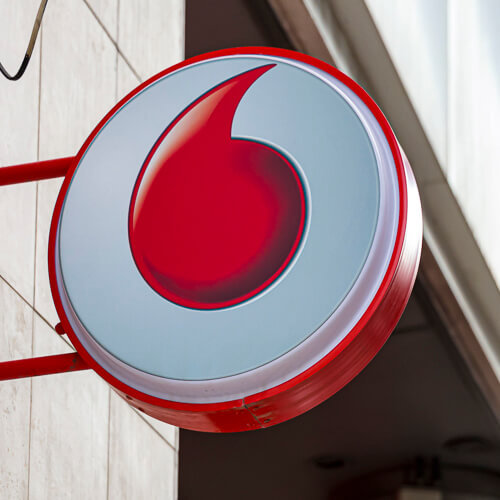Vodafone agrees $1.8B deal to exit Hungary
UK-based group expects its Hungarian bags to be packed by the end of the year after agreeing sale with state-backed Corvinus and local IT player 4iG.

Vodafone is getting out of Hungary, one of its European outposts. Assuming all goes to plan Vodafone will offload its Hungarian unit to Corvinus and 4iG by the end of the year. Corvinus is a Hungarian state holding company and 4iG is a Budapest-based IT systems integrator.
The deal gives Vodafone Hungary an enterprise value of 715 billion Hungarian forints (US$1.8 billion) and will see Corvinus take a 49% stake. 4iG, which relies heavily on state contracts, stands in line for 51%.
The enterprise value represents a multiple of 9.1x in relation to Vodafone Hungary's FY 2022 adjusted earnings before interest, taxes, depreciation and amortization after leases (EBITDAaL).
Figure 1:  Vodafone Group expects its Hungarian bags to be packed by the end of the year.
Vodafone Group expects its Hungarian bags to be packed by the end of the year.
(Source: l_martinez/Alamy Stock Photo)
It seems unlikely that 4iG's majority stake will give it the final say-so on big decisions, however, given the keenness of Hungarian Prime Minister Viktor Orbán's government to get more involved in different industry sectors it deems strategic. Aside from telecoms these include energy, banking and media.
Vodafone Intelligent Solutions (VOIS), Vodafone's Group-wide shared services division (and which has a presence in Hungary) is unaffected by the proposed transaction.
Read gives way to Orbán
Vodafone CEO Nick Read, despite mounting pressure to do more dealmaking and reduce debt – 41.6 billion euros ($41.6 billion) as of March 30 – managed to contrive almost a magnanimous tone in prepared remarks (as if he was doing the buyers a favor).
"The Hungarian government has a clear strategy to build a Hungarian owned national champion in the ICT sector," he said.
"This combination with 4iG will allow Vodafone Hungary, which has a proud history of success and innovation in the country, to play a major role in the future growth and development of the sector as a much stronger scaled and fully converged operator."
Read added that the combined entity "will increase competition and have greater access to investment to further the digitalisation of Hungary." Out of politeness, perhaps, he didn't mention a higher tax burden recently imposed on the telecoms sector and other industries by Orbán's government.
Want to know more? Sign up to get our dedicated newsletters direct to your inbox.
Hungary's minister for economic development Marton Nagy, as reported by Reuters, noted in a statement the government's prior successes with boosting ownership in other strategically important sectors.
"Now there is a chance for a Hungarian company, with a state ownership stake, to become a significant player in the telecoms market as well," he said.
There are a lot bigger deals to be done by Read and his management team, however. Vodafone last year completed the divestment of its European towers and is currently in talks with several parties about selling a stake in Vantage Towers, the company that was formed.
Vodafone today owns 81.7% of the business, valued at about €14 billion ($14 billion) in Frankfurt, and has insisted it will retain at least a 50% stake to ensure it has "co-control" of the assets.
Read's position contrasts with that of Deutsche Telekom and Spain's Telefónica, both of which have sold controlling stakes in tower ventures.
Related posts:
— Ken Wieland, contributing editor, special to Light Reading
Read more about:
EuropeAbout the Author(s)
You May Also Like












